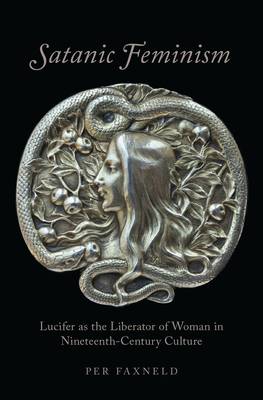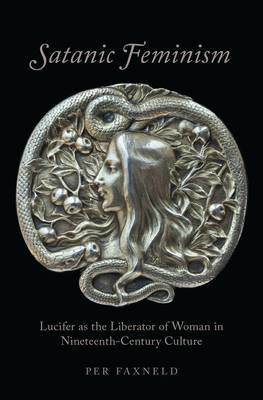
Door een staking bij bpost kan je online bestelling op dit moment iets langer onderweg zijn dan voorzien. Dringend iets nodig? Onze winkels ontvangen jou met open armen!
- Afhalen na 1 uur in een winkel met voorraad
- Gratis thuislevering in België vanaf € 30
- Ruim aanbod met 7 miljoen producten
Door een staking bij bpost kan je online bestelling op dit moment iets langer onderweg zijn dan voorzien. Dringend iets nodig? Onze winkels ontvangen jou met open armen!
- Afhalen na 1 uur in een winkel met voorraad
- Gratis thuislevering in België vanaf € 30
- Ruim aanbod met 7 miljoen producten
Zoeken
€ 98,45
+ 196 punten
Omschrijving
According to the Bible, Eve was the first to heed Satan's advice to eat the forbidden fruit and thus responsible for all of humanity's subsequent miseries. The notion of woman as the Devil's accomplice is prominent throughout Christian history and has been used to legitimize the subordination of wives and daughters. In the nineteenth century, rebellious females performed counter-readings of this misogynist tradition. Lucifer was reconceptualized as a feminist liberator of womankind, and Eve became a heroine. In these reimaginings, Satan is an ally in the struggle against a tyrannical patriarchy supported by God the Father and his male priests. Per Faxneld shows how this Satanic feminism was expressed in a wide variety of nineteenth-century literary texts, autobiographies, pamphlets, newspaper articles, paintings, sculptures, and even artifacts of consumer culture like jewelry. He details how colorful figures like the suffragette Elizabeth Cady Stanton, gender-bending Theosophist H. P. Blavatsky, author Aino Kallas, actress Sarah Bernhardt, anti-clerical witch enthusiast Matilda Joslyn Gage, decadent marchioness Luisa Casati, and the Luciferian lesbian poetess Renée Vivien embraced these reimaginings. By exploring the connections between esotericism, literature, art and the political realm, Satanic Feminism sheds new light on neglected aspects of the intellectual history of feminism, Satanism, and revisionary mythmaking.
Specificaties
Betrokkenen
- Auteur(s):
- Uitgeverij:
Inhoud
- Aantal bladzijden:
- 576
- Taal:
- Engels
- Reeks:
Eigenschappen
- Productcode (EAN):
- 9780190664473
- Verschijningsdatum:
- 21/09/2017
- Uitvoering:
- Hardcover
- Formaat:
- Genaaid
- Afmetingen:
- 165 mm x 236 mm
- Gewicht:
- 1002 g

Alleen bij Standaard Boekhandel
+ 196 punten op je klantenkaart van Standaard Boekhandel
Beoordelingen
We publiceren alleen reviews die voldoen aan de voorwaarden voor reviews. Bekijk onze voorwaarden voor reviews.











